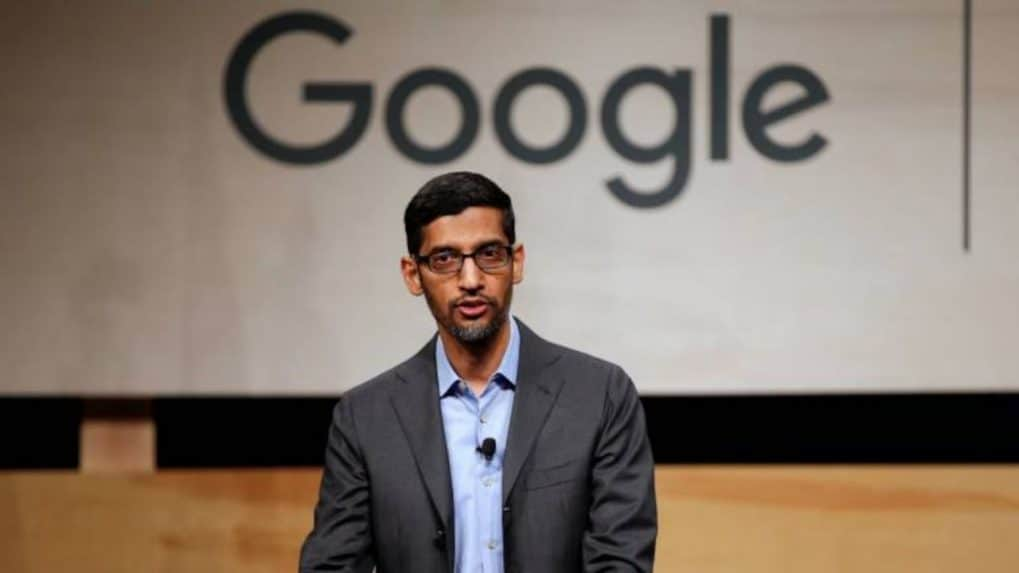How it Works
WPP, Havas, Omnicom: Are advertising’s biggest holdcos recasting agencies as AI Operating Systems?

Alphabet, the parent company of Google, reported its first-ever $100 billion quarter, a milestone that underscores how artificial intelligence is transforming nearly every corner of its business. The company’s chief executive, Sundar Pichai, hailed the results as evidence that years of investment in AI are beginning to pay off at scale.
“This was a terrific quarter for Alphabet, driven by double-digit growth across every major part of our business,” Pichai said on Tuesday during the company’s earnings call. “We’re seeing AI now driving real business results across the company.”
Just five years ago, Google’s quarterly revenue stood at $50 billion. The doubling of that figure, Pichai said, reflects the company’s evolution into a diversified technology powerhouse — with growth now coming not only from its core search and advertising business, but also from its cloud division, subscription products, and YouTube.
The AI Engine Behind Google’s Growth
The company’s AI products, from its Gemini models to its cloud-based enterprise tools, are now central to Google’s growth story. Pichai said Google’s first-party models now process 7 billion tokens per minute through direct API use. The Gemini app, which integrates Google’s generative AI assistant, surpassed 650 million monthly active users, a threefold increase from the previous quarter.
Google Cloud also reported accelerating growth, with its AI-driven revenue helping expand its backlog to $155 billion, up 46 percent from the prior quarter. Meanwhile, the company now counts 300 million paid subscriptions across products like Google One and YouTube Premium.
“Our momentum is strong and we’re shipping at speed,” Pichai said.
Building the AI Stack
Pichai emphasized Google’s “full-stack” approach to AI — a layered strategy encompassing infrastructure, research, and product applications.
At the base is Google’s sprawling computing infrastructure, which supports all its AI products. The company has ramped up production of its proprietary Tensor Processing Units (TPUs), including the new Ironwood chips, while continuing to offer high-performance NVIDIA GPUs to cloud customers.
AI research remains another pillar. Pichai spotlighted Google’s leading models — Gemini 2.5 Pro, Veo, Genie 3, and the viral Nano Banana — which he called “best in class.” Veo alone has powered more than 230 million videos, and over 13 million developers have built applications using Google’s generative models.
He also announced a major breakthrough in quantum computing: Google’s Willow chip reportedly ran an algorithm 13,000 times faster than a top global supercomputer. The result, he said, “is verifiable, paving the way to future practical applications.”
Reimagining Search and YouTube
Google’s flagship search business — the foundation of its advertising empire — is being refashioned around AI. Pichai said AI Overviews and AI Mode are driving higher engagement, particularly among younger users. AI Mode now boasts 75 million daily active users and supports 40 languages.
“This is an expansionary moment for Search,” he said, adding that AI-powered experiences are bringing users back more often, not less.
YouTube, meanwhile, continues to dominate the streaming landscape. It remains the No. 1 platform for living-room viewing in the U.S., and recently set a new record for concurrent viewers with its first live NFL broadcast, streamed from Brazil to 19 million fans worldwide.
Short-form video continues to deliver profits: in the U.S., YouTube Shorts now generates more revenue per watch hour than traditional in-stream videos.
Cloud and Enterprise AI Take Off
Google Cloud, which has become a crucial growth driver, is seeing rapid uptake of its AI portfolio. The company has signed more billion-dollar deals this year than in the previous two years combined, and now counts 13 product lines with annual revenue exceeding $1 billion each.
Over 70 percent of Google Cloud customers, including Best Buy, Banco BV, and FairPrice Group, are using its AI tools. In total, nearly 150 enterprise customers processed around 1 trillion tokens each using Google’s generative models over the past year.
Companies such as WPP and Swarovski have reported major efficiency and performance gains from Google’s AI platforms — with WPP claiming 70 percent efficiency improvements in campaign creation, and Swarovski citing a 17 percent jump in email open rates.
Waymo Expands Its Reach
Waymo, Alphabet’s autonomous driving unit, is also accelerating expansion. The company plans to launch service in London and Tokyo next year and is scaling testing in New York City. New approvals at San Jose and San Francisco airports will allow fully autonomous operations.
Waymo has also started enterprise ride programs and teen accounts in Phoenix, as it eyes broader commercial growth in 2026.
The Road Ahead
Pichai closed the call by reaffirming Google’s leadership in the AI era — and hinting at what’s next. “The incredible work of our teams is driving momentum across the board,” he said. “Our leadership in AI positions us so well for the opportunity ahead.”
From purpose-driven work and narrative-rich brand films to AI-enabled ideas and creator-led collaborations, the awards reflect the full spectrum of modern creativity.
Read MoreThe Storyboard18 Awards for Creativity have unveiled a Grand Jury comprising some of India’s most influential leaders across advertising, business, policy and culture, positioning it among the country’s most prestigious creative award platforms.